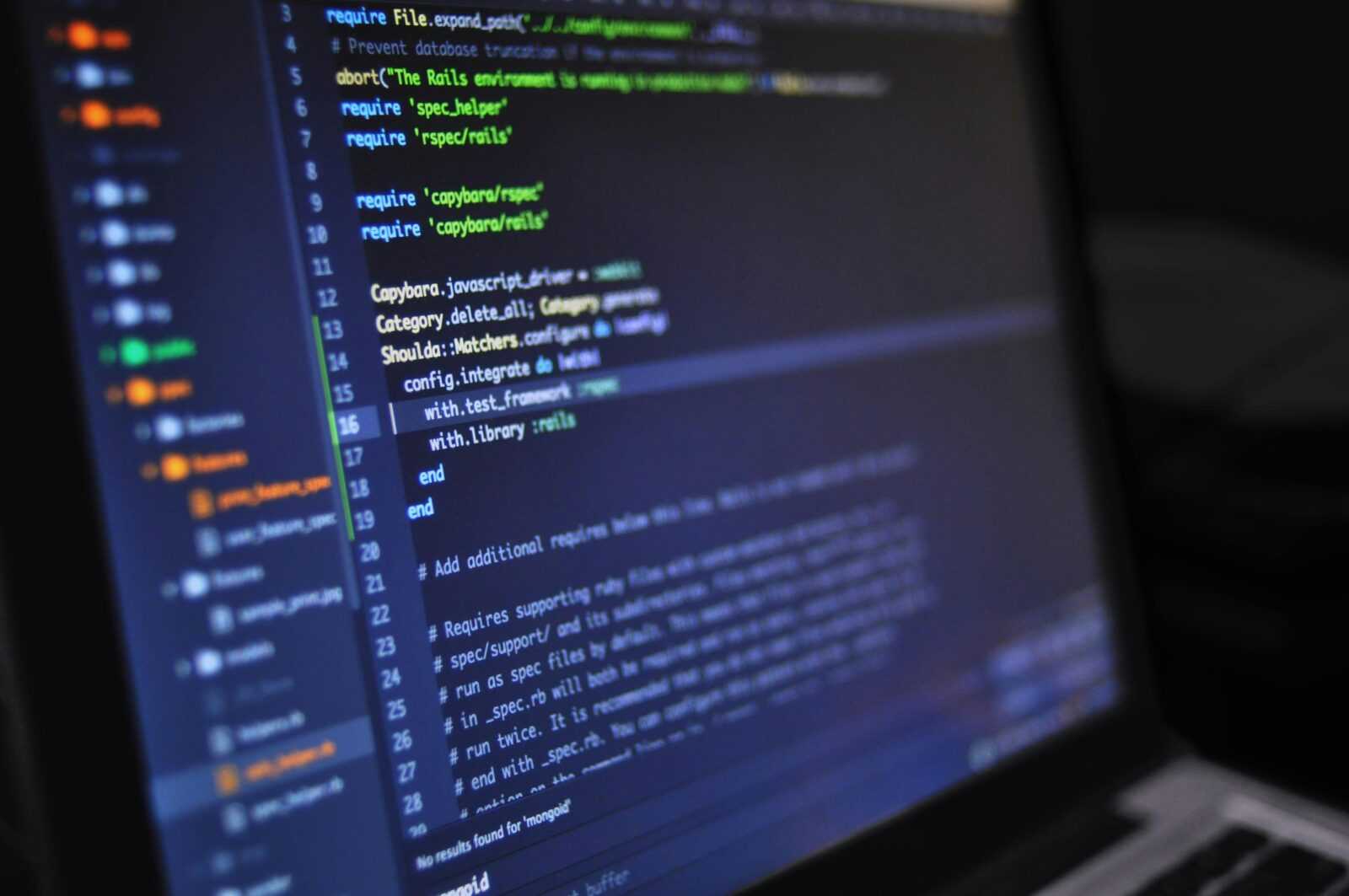Understanding the Journey from Novice to Ninja
1. Assessing Your Starting Point
When beginning the quest from novice to ninja in programming, it’s essential to evaluate where you stand presently. Assessing your starting point involves recognizing your current skill level, understanding the programming languages you are familiar with, and identifying your strengths and areas for improvement. By honestly appraising your abilities, you can create a tailored roadmap for advancement, focusing on areas that need enhancement while leveraging your existing knowledge.
2. Setting Goals for Your Programming Journey
Setting specific and achievable goals plays a crucial role in propelling your programming journey towards mastery. Define clear objectives that align with your aspirations, such as mastering a new programming language, improving problem-solving skills, or completing a challenging project. By setting measurable goals, you can track your progress, stay motivated, and celebrate achievements along the way. These goals act as milestones that guide you through the learning process, ensuring a structured path towards becoming a proficient coding ninja.
Building a Solid Foundation in Programming
Mastering the Basics: Variables, Control Structures, and Syntax
- When starting my programming journey, mastering the basics was essential. Understanding variables, control structures, and syntax laid the groundwork for my progression. Variables store data, control structures manage the flow of operations, and syntax dictates the language rules. By grasping these fundamental concepts, I set a strong foundation for advanced learning.
The Importance of Understanding Algorithms and Data Structures
- In my experience, comprehending algorithms and data structures has been pivotal. Algorithms are step-by-step procedures for solving problems, while data structures organize and store data effectively. Understanding these concepts not only enhances problem-solving skills but also optimizes code efficiency. By diving deep into algorithms and data structures, I honed my programming abilities and leveled up my skills.
Intermediate Strategies to Elevate Your Coding

Clean Code and Refactoring Techniques
To advance your coding skills from intermediate to advanced levels, it’s crucial to focus on writing clean code and mastering refactoring techniques. Clean code refers to code that is easy to read, understand, and maintain. By adhering to best practices such as meaningful variable names, consistent formatting, and modularization, you can enhance the quality of your codebase. Additionally, practicing refactoring—restructuring existing code without changing its external behavior—helps improve code readability, maintainability, and scalability. By honing your skills in writing clean code and applying refactoring techniques, you can elevate the overall quality and efficiency of your programming projects.
Exploring Object-Oriented Programming and Design Patterns
Delving into object-oriented programming (OOP) and design patterns is a pivotal step in advancing your coding proficiency. OOP enables you to model real-world entities as objects, promoting code reusability, maintainability, and organization. By learning key OOP principles like encapsulation, inheritance, and polymorphism, you can design robust and scalable applications. Moreover, familiarizing yourself with common design patterns—proven solutions to recurring design problems—empowers you to architect elegant and efficient software systems. By embracing OOP concepts and leveraging design patterns, you can elevate your coding skills to a new level of sophistication and craftsmanship.
Advanced Tactics to Achieve Ninja-Level Programming
1. Delving into System Design and Architecture
Exploring system design and architecture is a pivotal step towards mastering ninja-level programming. By understanding how to create scalable, efficient, and robust systems, I enhance my ability to tackle complex programming challenges. System design involves breaking down problems into smaller components, identifying the interactions between these components, and devising solutions that optimize performance. Embracing solid architectural principles allows me to craft software that not only functions effectively but can also adapt to evolving requirements. By honing my skills in system design and architecture, I elevate my programming prowess to a level where I can tackle even the most intricate coding tasks with confidence and proficiency.
2. Contributing to Open-Source Projects and Real-World Applications
Engaging with open-source projects and real-world applications is a valuable strategy for sharpening my programming expertise. By actively participating in open-source initiatives, I gain exposure to diverse coding styles, collaborate with seasoned developers, and contribute to projects that have real-world impact. This hands-on experience exposes me to different programming paradigms, best practices, and innovative solutions that can broaden my programming horizons. Additionally, working on real-world applications allows me to apply my skills in practical settings, understand industry standards, and solve authentic programming challenges. By immersing myself in open-source projects and real-world applications, I not only enhance my technical abilities but also cultivate a mindset of continuous learning and growth in the ever-evolving field of programming.
Staying Motivated and Overcoming Plateaus
Finding a Coding Community for Support and Accountability
Joining a coding community can be incredibly beneficial for staying motivated and overcoming plateaus in your programming journey. By interacting with like-minded individuals, you can share experiences, seek advice, and receive support when facing challenges. Surrounding myself with peers who understand the struggles and triumphs of coding has been instrumental in maintaining my motivation and pushing through tough times.
Embracing Continuous Learning and Experimentation
Embracing a mindset of continuous learning and experimentation is key to evolving as a programmer. I find that dedicating time to explore new languages, tools, and technologies not only expands my skill set but also keeps my passion for programming alive. Experimenting with different approaches and techniques allows for growth and innovation, pushing me to overcome plateaus and reach new levels of proficiency.
Toolkits and Resources for Continuous Improvement
Recommended Books and Online Courses
When it comes to leveling up your programming skills, there are a plethora of resources available to assist you on your journey. Personally, I have found that diving into well-curated books and online courses can significantly enhance your understanding and proficiency in various programming languages and concepts.
Some must-read books for aspiring programmers include classics like “Clean Code” by Robert C. Martin, which delves into the importance of writing clean, maintainable code. Another gem is “Code Complete” by Steve McConnell, a comprehensive guide on software construction that covers a wide range of programming aspects. These books provide valuable insights and best practices that are essential for honing your skills.
In addition to books, online courses offer interactive and engaging learning experiences that cater to different learning styles. Platforms such as Coursera, Udemy, and Pluralsight offer a plethora of courses ranging from beginner to advanced levels in various programming languages, algorithms, and software development practices. These courses provide structured learning paths and hands-on projects to help you apply your knowledge in practical scenarios.
By immersing yourself in these resources, you can deepen your understanding of programming fundamentals, stay updated on the latest industry trends, and embark on a continuous learning journey that propels you towards excellence in programming.
Tools and Editors to Enhance Productivity
As a programmer, having the right tools and editors at your disposal can make a significant difference in your productivity and workflow efficiency. Throughout my programming journey, I have discovered several tools and editors that have revolutionized the way I write code and debug applications.
One of the indispensable tools in my toolkit is GitHub, a version control system that enables collaboration with other developers and keeps track of code changes. By learning to use Git and GitHub effectively, you can streamline your development process and ensure seamless teamwork on projects.
When it comes to code editors, IDEs like Visual Studio Code and JetBrains IntelliJ IDEA offer powerful features and extensions that enhance code readability, provide intelligent code suggestions, and facilitate seamless debugging. These editors support multiple programming languages and frameworks, making them versatile options for programmers working on diverse projects.
Moreover, tools like Docker for containerization, Postman for API testing, and Jira for project management can further streamline your development workflow and project organization. By incorporating these tools into your daily programming routine, you can optimize your efficiency, collaborate effectively with team members, and deliver high-quality solutions consistently.
Investing time in exploring and mastering these tools not only improves your programming productivity but also equips you with the necessary resources to tackle complex coding challenges with confidence.

 Amber Derbyshire is a seasoned article writer known for her in-depth tech insights and analysis. As a prominent contributor to Byte Buzz Baze, Amber delves into the latest trends, breakthroughs, and developments in the technology sector, providing readers with comprehensive and engaging content. Her articles are renowned for their clarity, thorough research, and ability to distill complex information into accessible narratives.
With a background in both journalism and technology, Amber combines her passion for storytelling with her expertise in the tech industry to create pieces that are both informative and captivating. Her work not only keeps readers up-to-date with the fast-paced world of technology but also helps them understand the implications and potential of new innovations. Amber's dedication to her craft and her ability to stay ahead of emerging trends make her a respected and influential voice in the tech writing community.
Amber Derbyshire is a seasoned article writer known for her in-depth tech insights and analysis. As a prominent contributor to Byte Buzz Baze, Amber delves into the latest trends, breakthroughs, and developments in the technology sector, providing readers with comprehensive and engaging content. Her articles are renowned for their clarity, thorough research, and ability to distill complex information into accessible narratives.
With a background in both journalism and technology, Amber combines her passion for storytelling with her expertise in the tech industry to create pieces that are both informative and captivating. Her work not only keeps readers up-to-date with the fast-paced world of technology but also helps them understand the implications and potential of new innovations. Amber's dedication to her craft and her ability to stay ahead of emerging trends make her a respected and influential voice in the tech writing community.
